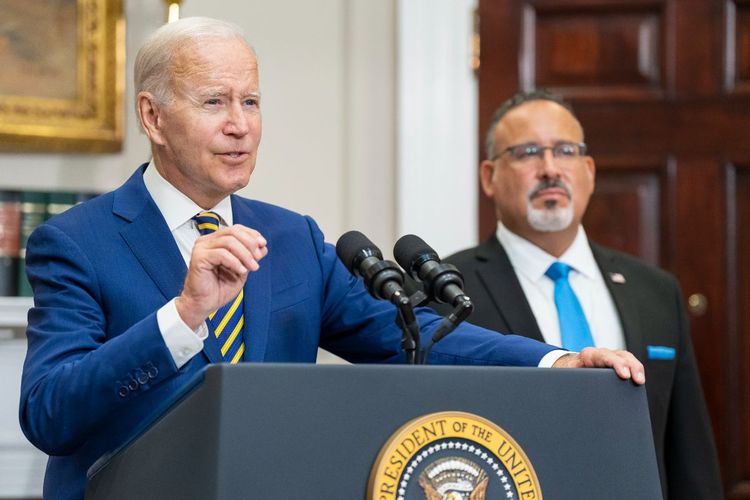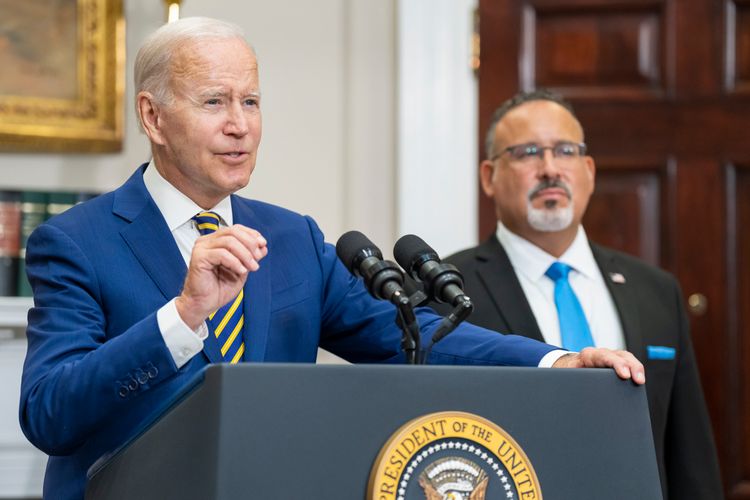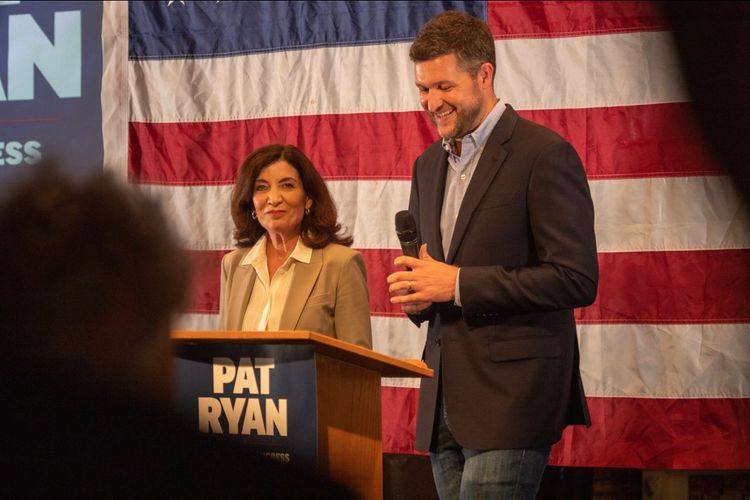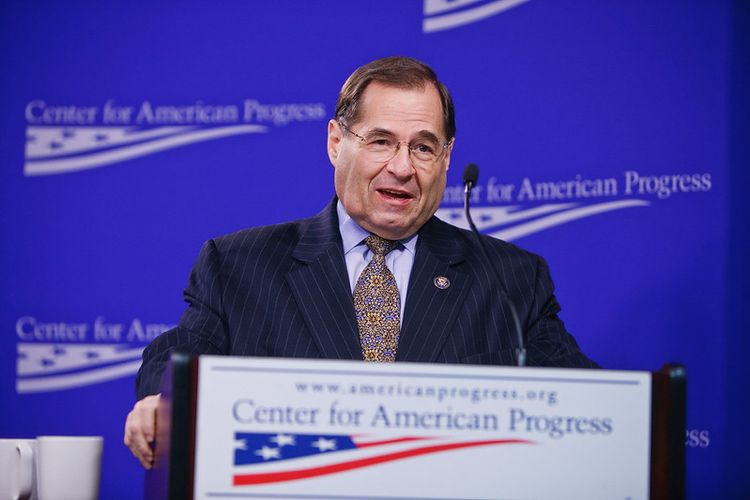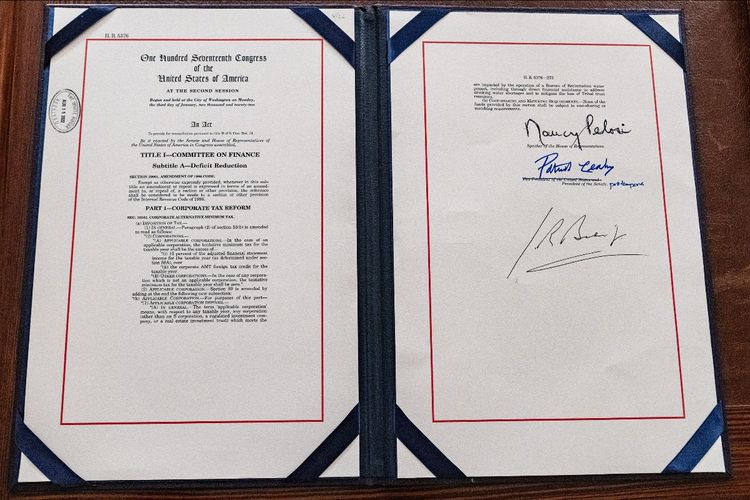Wake Up To Politics - July 26, 2021
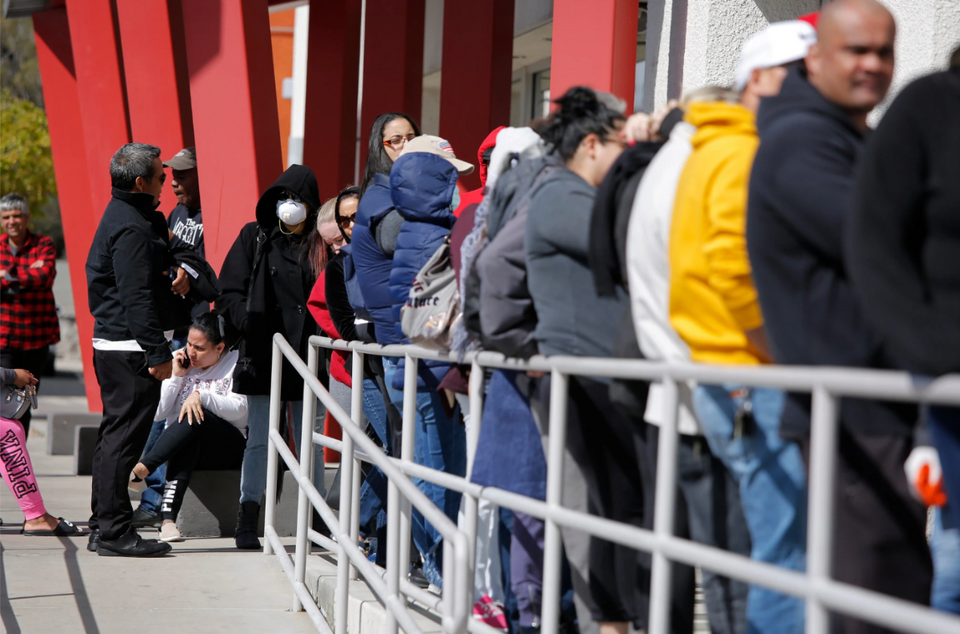
Good morning! It’s Monday, July 26, 2021. Election Day 2022 is 470 days away. Election Day 2024 is 1,198 days away.
Welcome back to Wake Up To Politics. I hope you had a nice weekend. This will be a big week, as the infrastructure debate heats up and the January 6 select committee holds its first hearing.
I’ll be covering both those stories — and more — in the days ahead. But today I’m leading off with our weekly Economics Roundup, giving an update on where the economy stands as the Delta variant continues to pummel the United States. Here we go...
Policy Roundup: Economics
On Mondays, Wake Up To Politics contributor Davis Giangiulio offers a roundup on the week’s top economics news:
Jobless claims experienced an unexpected jump, as fears of the Delta variant’s impact on the economy are rising. The Labor Department revealed on Thursday that 419,000 initial unemployment insurance (UI) claims were filed in the week ending July 17. That was up 51,000 compared to the previous week’s total, which was also revised to be 8,000 more claims than originally reported. The total number of people on unemployment insurance still fell by 29,000; however, this is a lagging indicator as it’s one week behind the initial claims figure.
The increase in unemployment benefits claims — to the highest level since mid-May — is a sign of the lingering economic pain of the pandemic, which reignited this week as the stock market tumbled on worries the delta variant could halt the recovery. But not everyone is concerned: “I do not worry that this [initial claims report] signals a sudden weakening in labor demand,” Stephen Stanley, the chief economist at Amherst Pierpont Securities, told MarketWatch.
Initial reports are suggesting that states that ended unemployment benefits early aren’t reaping the benefits they hoped. Amid fear of a labor shortage, many states announced plans to bring early ends to their expanded UI programs in hopes of coaxing people to come back to work. But a near Morgan Stanley report shows there was little difference in the decrease in unemployment claims between states that ended benefits and those that did not, saying there was “mixed evidence” on whether ending the benefits had an impact.

Another analysis released this week by Arindrajit Dube, a University of Massachusetts Amherst professor, using U.S. Census Bureau Data, showed a similar story. He found that while the number of people on unemployment fell sharply in these states, employment among this group didn’t increase — and actually fell by 1.4 percent. “However, there is evidence that the reduced UI benefits increased self-reported hardship in paying for regular expenses,” Dube wrote, while adding that it’s early and more data will be needed to get the full picture on this story.
Meanwhile, the “Covid recession” is officially over and has been for more than a year. The National Bureau of Economic Research, which determines what business cycle the U.S. economy is in, announced back in June 2020 that the country entered recession in February 2020. Then, last Monday, they revealed that the recession finished and the economy entered recovery in April 2020. The two-month recession is the shortest ever.
While the recession has been over for more than a year, that does not mean the economy has not continued to face hardship. Hundreds of thousands more compared to February 2020 are still applying for unemployment, millions have still not re-entered the labor force, and inflation fears are rampant. While the worst of the “Covid Recession” lasted two months, the virus’ impact on the economy has lasted much longer.
Ask Gabe
Your questions, answered.
Q: What would prevent Pelosi from appointing a slate of respected Republicans who are not currently in government, to take the place of the ones McCarthy initially appointed? Would such a committee require that all members be members of the House, or is there some other kind of committee she could create? — Jay M. of Kensington, CA
A: This question is in reference to House Speaker Nancy Pelosi’s decision last week to block two Republicans from joining the House select committee investigating the January 6 attack, which led House Minority Leader Kevin McCarthy to announce his conference would boycott the panel altogether.
According to the resolution setting up the committee, the panel must be made up of members of the House, so Pelosi could not appoint non-lawmakers to fill those spots. (Pelosi had originally proposed a bipartisan commission to investigate the Capitol riot, which would have been made up entirely of individuals outside government, but that plan was blocked by Senate Republicans.)
However, the resolution also gives Pelosi pretty wide berth to name all 13 members of the select committee; it only requires that five of them be appointed “after consultation with the minority leader.” Theoretically, she’s already “consulted” with McCarthy — although, according to CNN, their phone call on the select committee last week got pretty heated.
Pelosi has already named Rep. Liz Cheney (R-WY) to the committee; on Sunday, she announced plans to give one of the slots originally intended for McCarthy to Rep. Adam Kinzinger (R-IL), another vocal Trump critic in the GOP conference. In addition, per ABC News, Democrats are considering hiring former Rep. Denver Riggleman (D-VA) to serve on the select committee’s staff.
So, to answer Jay’s question: Pelosi cannot name non-House members to the select committee, but she can bring on outside Republicans to join the committee’s staff — and has already started to appoint more Republican lawmakers of her own choosing to serve on the committee.
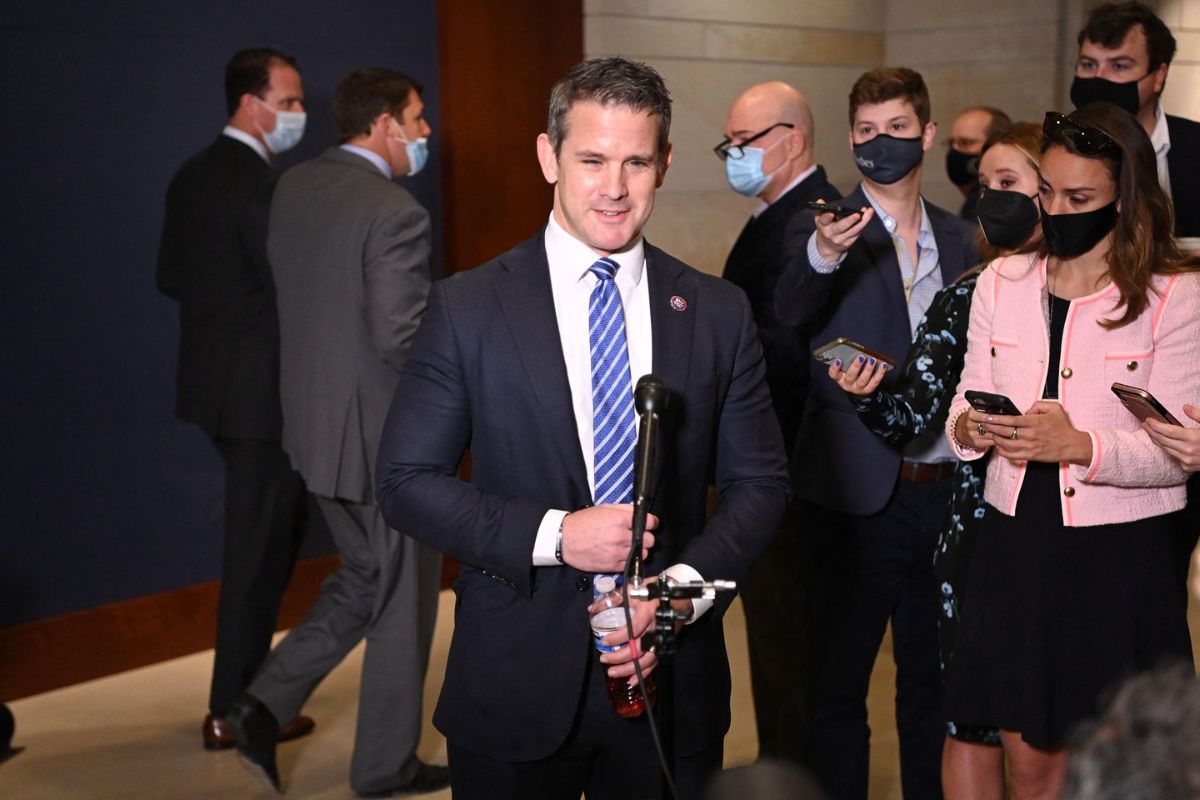
Do you have a question about American politics that you want answered? Send it to gabe@wakeuptopolitics.com and it might be featured in the newsletter.
Gabe’s Picks
What I’m reading and watching. This special section is available to readers who have donated to Wake Up To Politics or shared the newsletter using their unique referral link.
All you need to do to gain access is send your signup link — *|RH_REFLINK|* — to your friends, family, or followers. If just one of them uses it to sign up, you’ll see “Gabe’s Picks” in your newsletter! You can also share your referral link on Twitter, Facebook, or by email.
Wake Up To Politics spreads purely through word of mouth, so every share truly does help!
Daybook
What’s happening in Washington today. (All times Eastern)
White House
→ President Joe Biden will receive his daily intelligence briefing at 10 a.m. Them, at 11:10 a.m., he will deliver remarks on the 31st anniversary of the Americans with Disabilities Act (ADA), which prohibits discrimination against people with disabilities. According to Axios, Biden will focus on the bipartisan roots of the ADA, which he co-sponsored as a Democratic senator and was signed into law by a Republican president, George H.W. Bush.
At 2 p.m., Biden will participate in a bilateral meeting with Prime Minister Mustafa Al-Kadhimi of Iraq. According to the Associated Press, the two leaders are expected to announce that “they’ve come to an agreement to end the U.S. combat mission in Iraq by the end of the year.”
→ White House Press Secretary Jen Psaki will hold her daily press briefing at 12:30 p.m.
Congress
→ The Senate will convene at 10:30 a.m. The chamber will vote at around 1:30 p.m. on confirmation of Jill Hruby to be Under Secretary of Energy for Nuclear Security.
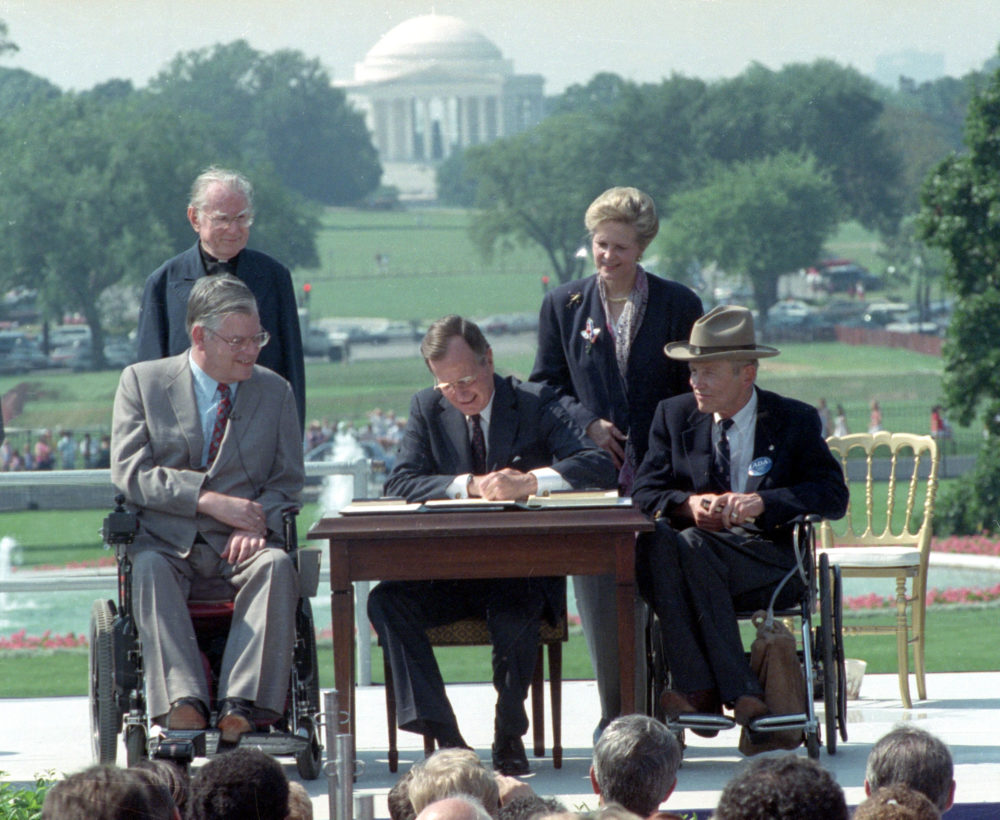
→ The House will convene at 12 p.m. The chamber will consider 20 pieces of legislation at around 2 p.m. under “suspension of the rules,” a fast-tracked process:
- S. 848, the Consider Teachers Act of 2021
- S. 1828, the HAVANA Act of 2021
- H.R. 2278, to authorize the Secretary of the Interior to designate the September 11th National Memorial Trail
- H.R. 1029, the Free Veterans from Fees Act
- H.R. 1154, the Great Dismal Swamp National Heritage Area Act
- H.R. 1664, to authorize the National Medal of Honor Museum Foundation to establish a commemorative work in the District of Columbia and its environs
- H.R. 2365, the Gold Star Mothers Family Monument Extension Act
- H.R. 2497, the Amache National Historical Site Act
- H.R. 4300, the Alexander Lofgren VIP Act
- S. 325, to amend the Alyce Spotted Bear and Walter Soboleff Commission on Native Children Act to extend the deadline for a report by the Alyce Spotted Bear and Walter Soboleff Commission on Native Children
- H.R. 2485, the Access to Congressionally Mandated Reports Act
- S. 272, the Congressional Budget Justification Transparency Act of 2021
- H.R. 3533, to establish occupational series for Federal positions in software development, software engineering, data science, and data management
- H.R. 3599, the Federal Rotational Cyber Workforce Program Act of 2021
- H.R. 1204, the District of Columbia Chief Financial Officer Salary Home Rule Act
- H.R. 978, the Chai Suthammanont Remembrance Act
- H.R. 2617, the Performance Enhancement Reform Act
- S. 2382, to authorize the National Cyber Director to accept details from other elements of the Federal Government on nonreimbursable basis
- S. 957, to direct the Secretary of Veterans Affairs to ensure that certain medical facilities of the Department of Veterans Affairs have physical locations for the disposal of controlled substances medications
- S. 1910, the Major Medical Facility Authorization Act of 2021
If recorded votes are requested on any of the bills, they will be held at 6:30 p.m.
Courts
→ The Supreme Court is on recess until October.
Campaign Trail
→ Former Secretary of State Mike Pompeo will deliver remarks tonight at the Ronald Reagan Presidential Library in Simi Valley, California, as part of the library’s “Time for Choosing” speaker series.
Pompeo is one of several potential 2024 presidential candidates participating in the speaker series, along with former Vice President Mike Pence, former UN Ambassador Nikki Haley, Sen. Tom Cotton (R-AR), and others. According to Fox News, Pompeo will outline four “faith-based virtues” that he will argue must define the Republican Party and America: “vision, hope, gratitude, and forgiveness.”
Thanks for waking up to politics! If you enjoy reading this newsletter, I’d be so grateful if you’d consider donating to help support me and my work. If you want to show off your support for Wake Up To Politics, you can also buy some merchandise.
Also: don’t forget to tell your friends and family to sign up for the newsletter using your unique referral link. And if you have any questions or comments, feel free to email me at any time.

